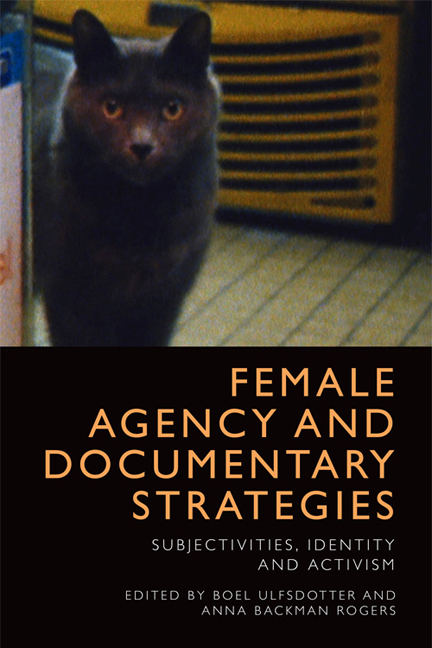4 - ‘Scriptrix Narrans’: Digital Documentary Storytelling’s Radical Potential
Published online by Cambridge University Press: 28 April 2021
Summary
To have voice is to have power.
Ron Marken, Foreword, in Maria Campbell’sStories of the Road Allowance PeopleAGNÈS VARDA
Agnes Varda, the highest ranked female director in Sight and Sound's 2014 poll of greatest documentaries in ‘Best Documentaries of All Time’, embraces a mode of activist cinema in her Les glaneurs et la glaneuse/The Gleaners and I (2000) that subverts classical theory through a unique ‘cinécriture’, according to Delphine Benezet. Together with ‘a visual and verbal emphasis on female embodiment’, Varda's documentaries offer what Benezet characterises as ‘a voice of resistance [in] her commitment to resist norms of representation and diktats of production’. Hers is the voice of the ‘subject’ as ‘agent’ proudly claiming her own filmmaking.
The Gleaners and I examines the act of gleaning in a contemporary light, introducing viewers to a rich cross-section of the French population (a chef, an artist, a language teacher, low-income wage earners, the homeless), people who forage for their better-offs’ leftovers. In one instance, Varda herself, searching for heart shaped-potatoes, gleans with foragers collecting misshapen potatoes – market rejects – dumped in the field by farmers, her hands appearing on screen ‘not only as authoring agent, but as subject matter’. Throughout the film, Varda achieves a singular bricolage, cobbling together a narrative from her many hours of footage (much of which includes herself), self-reflexively acknowledging her own role as a ‘gleaner of images’: la glaneuse, as Virginia Bonner puts it.
Declaring that she wants to explore the problems of consumption – waste, the eating of food discarded by the well-off – Varda shuns the role of ‘sociolgue’ or ‘ethnographe’ with its whiff of class imbalance between filmmaker and filmed. Instead Varda inserts herself into her own film, she is one who interviews subjects precisely as an inquiring subject. For Homay King, Varda and her modern-day gleaners ‘recover, save and collect things, not in order to embalm them, but to use them, in the sense of putting them into practice and circulation’. Here, Varda, ‘flaneuse with a portable camera … embodies a transitional, peripatetic mode of subjectivity’ that is at once ‘materialist, feminist, phenomenological and political’. Aware that she is asking her subjects to reveal personal details, Varda thinks it only fitting that she reciprocates: ‘I thought that the film should also reveal a little about the filmmaker, that I should use a little bit of myself in it’.
- Type
- Chapter
- Information
- Female Agency and Documentary StrategiesSubjectivities, Identity and Activism, pp. 57 - 69Publisher: Edinburgh University PressPrint publication year: 2018



